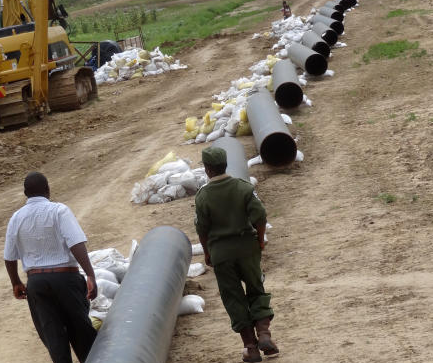×
The Standard e-Paper
Stay Informed, Even Offline

NAIROBI, KENYA: The new Mombasa-Nairobi pipeline is set to be commissioned in July, the Kenya Pipeline Company (KPC) has said.
The Sh48 billion pipeline known as Line Five has been under construction since 2014.